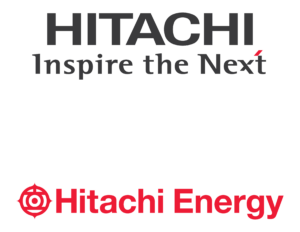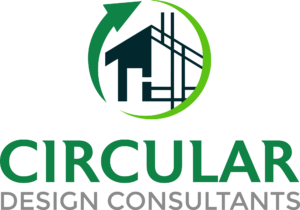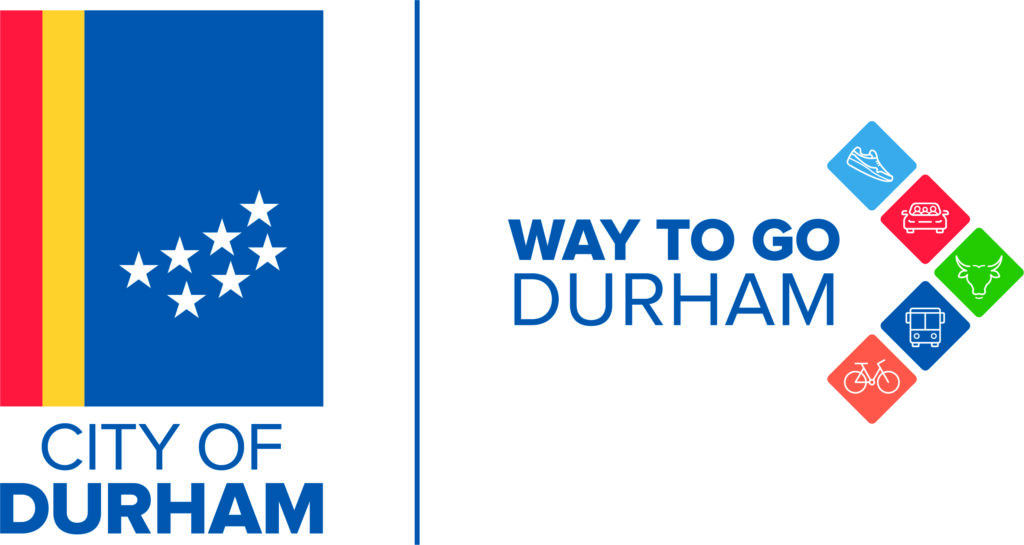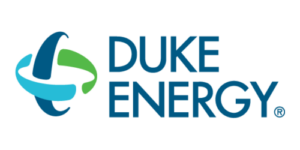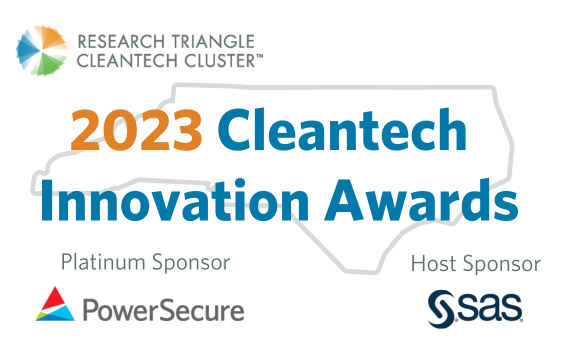
About the Awards
The Research Triangle Cleantech Cluster created the annual Cleantech Innovation Awards to recognize cleantech initiatives, projects, and innovations from companies, organizations, and government agencies that have contributed to the growing cleantech ecosystem in North Carolina.
The awards celebrate a range of creative solutions from water technologies to renewables and new transportation models, among others. The awards will be judged by leaders from the cleantech industry and public sectors. All award nominees will be featured on the event webpage and are invited to attend the Cleantech Innovation Award Ceremony.
The 2023 Cleantech Innovation Awards Ceremony were held Thursday, November 16, 2023 at SAS Institute in Cary, N.C.
Award Categories
Individuals and Small Teams
Cleantech Champion
Recognizes an individual who exemplifies a deep commitment to advancing the cleantech industry in their local community, the Research Triangle region, or statewide.
Achievements may include demonstrated dedication to cleantech innovation or adoption, business expansion or relocation, development of high-impact technology, or spearheading regional/cross-sectoral collaboration to drive innovation.
Cleantech Entrepreneur Award
Recognizes an individual who has demonstrated innovation through the development of new technology or advancing existing technology that has the potential to disrupt traditional industries, create a cleaner planet, and improve the quality of life for people here in North Carolina or around the world.
Cleantech Research Innovation
Recognizes an individual or team from industry or within an institution of higher education that is pursuing a research-based solution to a pressing cleantech challenge.
Examples include the creation of a new technology, working toward commercialization of a research-based cleantech innovation, or spearheading a new collaboration between research and industry.
Organizations
Cleantech Talent Development
Recognizes an organization or initiative that has made a significant contribution to developing talent, providing professional development, or fostering employment opportunities that support the cleantech industry in the region or state.
Examples may include a corporate apprenticeship or internship program, a community college or university certificate in clean technologies, or a K-12 curriculum or outreach program.
Equity in Cleantech
Recognizes an organization or initiative that has demonstrated a strong commitment to equity in the implementation of a cleantech project.
Examples may include deployments that focus specifically on the equitable availability of cleantech solutions, initiatives that address existing inequalities through new cleantech investments, and stakeholder engagement processes specifically designed to promote inclusion in planning or implementation processes.
Diversity in Cleantech
Recognizes an organization or initiative that has made significant contributions to ensuring the cleantech workforce reflects the people it serves, pursues organizational approaches that are inclusive of a wide range of backgrounds and perspectives, or actively supports employees’ sense of belonging within the organization.
Examples may include targeted efforts to help underrepresented groups explore cleantech career opportunities, corporate programs designed to recruit and support underrepresented employees, or inclusion-focused mentoring or networking initiatives.
Cleantech Impact Awards (multiple categories)
Recognize organizations that have made significant impacts through the application of cleantech to create positive impacts for the environment, economy, and residents.
Cleantech Impact: Energy
Recognizes an energy project that applies cleantech to create positive impacts for the environment, economy, and residents.
Examples may include innovations to existing grid infrastructure to enhance resiliency, renewable energy installations, microgrid deployments, or innovative energy efficiency programs.
Cleantech Impact: Transportation
Recognizes a transportation or mobility project that uses innovative cleantech solutions to create positive impacts for the environment, economy, and residents.
Examples may include successful fleet electrification projects, EV charging deployments, microtransit initiatives, or efforts to enhance the energy efficiency of mass transit systems.
Cleantech Impact: Water
Recognizes a water, wastewater, or stormwater project that applies cleantech solutions to create positive impacts for the environment, economy, and residents.
Examples may include deployment of smart metering solutions at scale, application of data to identify opportunities for water conservation, or innovative technology deployments that improve water quality and the environment.
Cleantech Impact: Local Government
Recognizes a local government that has effectively leveraged resources and partnerships to complete an innovative project or initiative deploying cleantech solutions to create positive impacts for the environment, economy, and residents.
Examples may include smart city technology deployments, collaborative stormwater management agreements, or cross-departmental teams addressing climate change or cleantech adoption or deployment.
Cleantech Impact: Economic Development
* Awarded at RTCC discretion, not part of official nomination and judging process
Recognizes a cleantech organization that has accelerated economic growth in the region or state.
Examples may include a cleantech business that has relocated to the region or state, an organization that has made a significant impact through the application of clean technologies, or an organization that has enabled cleantech economic growth.
Meet Our Speakers

Jerry Williams
Opening Remarks
Chief Environmental Officer, SAS
As Chief Environmental Officer, Jerry Williams helps lead the development and execution of SAS’ sustainability strategy across operations worldwide. He uses SAS analytic solutions to manage the company’s global operational data, report Environmental, Social and Governance (ESG) performance, identify risks and opportunities, and ensure SAS is compliant with rapidly emerging environmental regulations.
Jerry is a primary facilitator of smart campus and environmental initiatives at SAS and key contributor to ongoing resource efficiency programs. In the community, he is often asked to speak about the urgency of addressing climate change, the benefits of a clean energy economy, plug-in electric vehicle infrastructure, LEED certification, solar and other corporate sustainability initiatives to a wide range of municipal, education and legislative audiences. He actively fosters collaboration and engagement across operations through the deployment of SAS Visual Analytics reporting to front line subject matter experts.

Andrew Wall
Platinum Sponsor Remarks
Senior Vice President and Chief Commercial Officer, PowerSecure
Andrew Wall serves as senior vice president and chief commercial officer for PowerSecure. He is a member of the executive management team and is responsible for leading the commercial organization to deliver sustained, profitable growth of the company. In this role, Mr. Wall leads and oversees the strategic growth development and execution, corporate development, sales and marketing performance, and delivery of world-class customer experience.
Prior to joining PowerSecure, Mr. Wall served as senior vice president and chief commercial officer for NN, Inc., a diversified industrial company, combining advanced engineering and production capabilities with in-depth materials science expertise to design and manufacture high-precision components and assemblies for a variety of markets on a global basis. Prior to joining the NN, Inc., Mr. Wall served in numerous leadership positions for ABB, a global manufacturer of heavy electrical equipment and automation technology, with roles spanning corporate strategy, business development, marketing, sales, and business unit general management over an 18-year tenure. Mr. Wall also serves on the Board of Directors for Research Triangle Cleantech Cluster, an industry-funded, industry-led organization focused on accelerating growth and leadership of the cleantech economy, leveraging the unique concentration of industry, academic, and government leaders in the Research Triangle of NC to create benefits through innovation, deployment, and talent in the region, North Carolina, and beyond.
Mr. Wall holds a Bachelor of Science, Business Management from North Carolina State University and a Master of Business Administration from Elon University.

Machelle Baker Sanders
Lightning Talk: Our Foundations for Excellence in Cleantech
Secretary of Commerce, NC Department of Commerce
In February 2021, Governor Cooper appointed Secretary Machelle Baker Sanders to lead the North Carolina Department of Commerce, enlisting her experience as former Administration Secretary, strong background as a business leader and her extensive knowledge of what it takes to build a globally competitive workforce. Secretary Sanders’ vision for North Carolina’s post-pandemic economic restoration is to work with partners to attract better paying jobs, support small businesses, and stimulate our state’s innovation and entrepreneurial economy. Her bold and purposeful leadership aims to ensure North Carolina’s diverse state is an inclusive one that works for all people.

Kevin Hernandez
Lightning Talk: Building on Our Strengths to Accelerate Cleantech Innovation
Partner, ScottMadden
Kevin Hernandez is a partner with ScottMadden where he specializes in grid modernization, electrification and the clean energy transition. Since joining the firm in 2012, he has consulted with a variety of utility and industry clients on issues ranging from non-wires alternatives and DER integration to fleet electrification and EV infrastructure planning. Kevin earned his B.A. from the University of Tennessee, Knoxville, an M.A from the U.S. Navy War College in Newport, Rhode Island, and his M.B.A. from the Fuqua School of Business at Duke University. He is also a veteran of the United States Navy.

Dr. Deb Wojcik
Lightning Talk: Creating a Collaborative Vision of our Cleantech Future
Executive Director, Research Triangle Cleantech Cluster
Deb Wojcik joined the Research Triangle Cleantech Cluster as Executive Director in August 2021. She brings over 20 years of experience in program leadership and development, stakeholder engagement and network building, career and professional development, and environmental education and communication.
Deb has worked extensively to build strong relationships across sectors and effectively address complex challenges through creativity and collaboration. She has developed and managed innovative programs at the Pratt School of Engineering and the Nicholas School of the Environment of Duke University, Stanford University, University of Florida, North Carolina Coastal Federation, North Carolina National Estuarine Research Reserve, and with technology companies.
Deb earned a PhD from the University of Florida focused on adaptive management of resources and stakeholder education and engagement. Her doctoral research focused on using a network approach to understand communication flows and decision making around water and wildlife resources in the Okavango Delta of Botswana. She was a postdoctoral scholar at Stanford University and holds Master of Environmental Management, Master of Arts in Teaching, and Bachelor of Science degrees from Duke University.
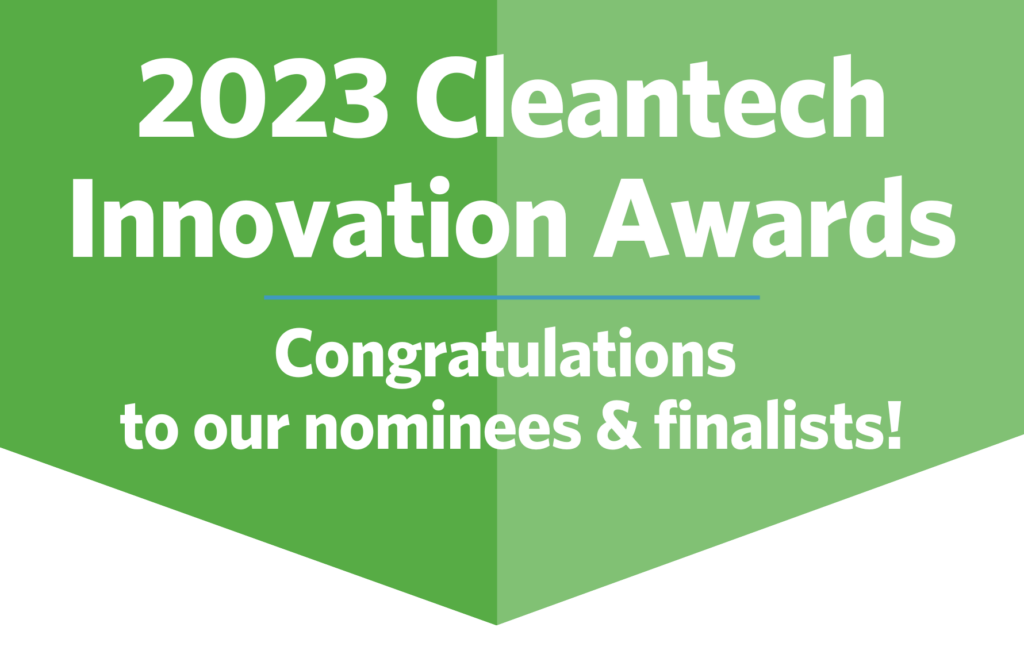
Finalists are listed in green
Cleantech Champion
Recognizes an individual who exemplifies a deep commitment to advancing the cleantech industry in their local community, the Research Triangle region, or statewide.
The 2023 Cleantech Champion will be announced at the Awards Ceremony on Thursday, November 16.
Cleantech Entrepreneur
Recognizes an individual who has demonstrated innovation through the development of new technology or advancing existing technology that has the potential to disrupt traditional industries, create a cleaner planet, and improve the quality of life for people here in North Carolina or around the world.
The 2023 Cleantech Entrepreneur will be announced at the Awards Ceremony on Thursday, November 16.
Cleantech Research Innovation
Recognizes an individual or team from industry or within an institution of higher education that is pursuing a research-based solution to a pressing cleantech challenge.

Dr. Mike Muglia
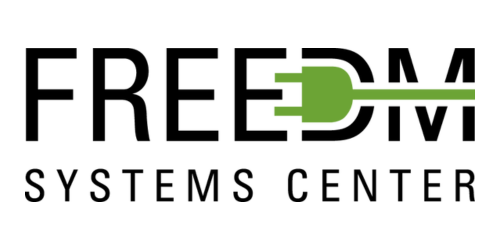
Dr. Wensong Yu
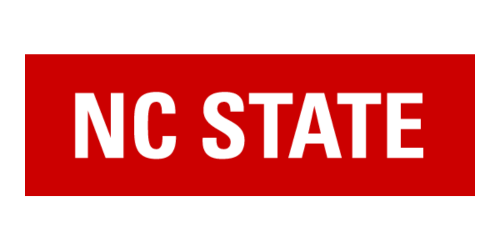
Dr. Aram Amassian

Dr. Leila Hajibabai

Dr. James Martin
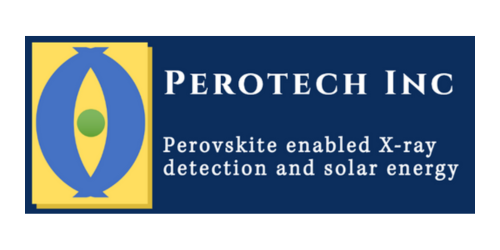
Perotech Inc
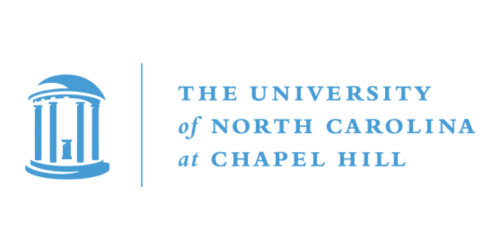
UNC-Chapel Hill Undergraduate Capstone Project Teams
Cleantech Talent Development
Recognizes an organization or initiative that has made a significant contribution to developing talent, providing professional development, or fostering employment opportunities that support the cleantech industry in the region or state.
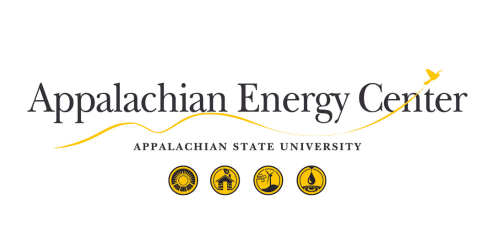
Appalachian Energy Center Workshop Series

CSI Public Engagement & Outreach

Power+ Program
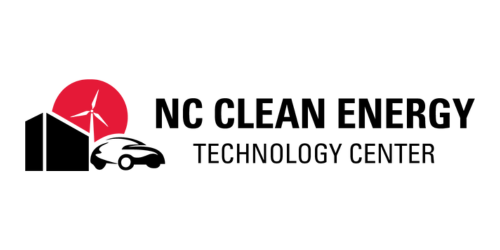
NC Clean Energy Technology Center’s Clean Energy Training Program
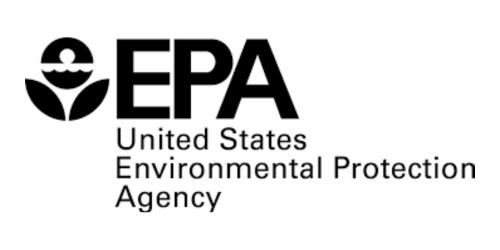
EPA-RTP’s Summer Science Institute, EPA-RTP’s Community Engagement & STEM Education Program (CE-STEM)
Equity in Cleantech
Recognizes an organization or initiative that has demonstrated a strong commitment to equity in the implementation of a cleantech project.
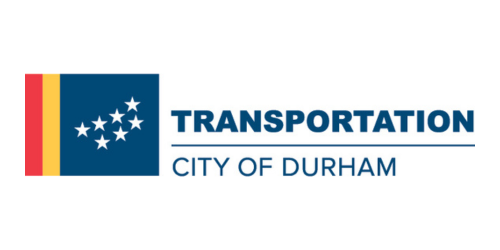
Bull E-Bike Pilot
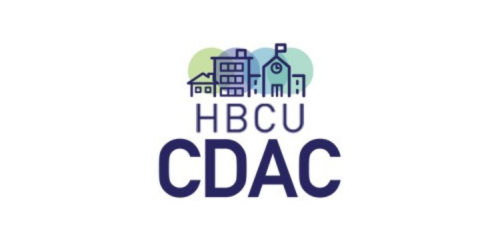
Clean Energy Initiative
Diversity in Cleantech
Recognizes an organization or initiative that has made significant contributions to ensuring the cleantech workforce reflects the people it serves, pursues organizational approaches that are inclusive of a wide range of backgrounds and perspectives, or actively supports employees’ sense of belonging within the organization.
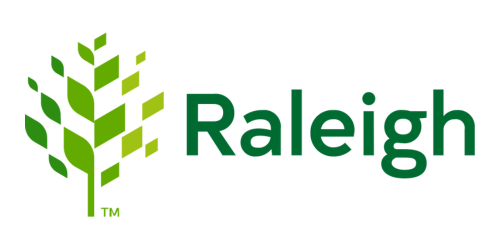
Partnership Raleigh Community Climate Intern Program and Conservation Intern Program

North America Empower Network for Employee Resource Groups

NIST-RACER: Building Pandemic Resilience in Native American Communities
Cleantech Impact: Energy
Recognizes an energy project that applies cleantech to create positive impacts for the environment, economy, and residents.
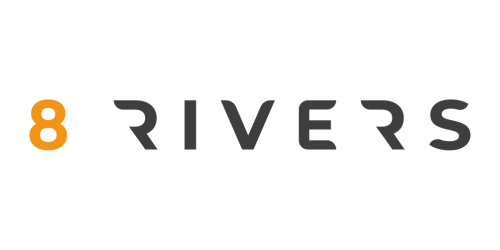
8RH2

Circular Design Consulting and Real Estate Experts
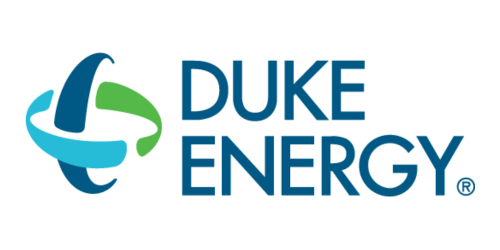
Hot Springs Microgrid
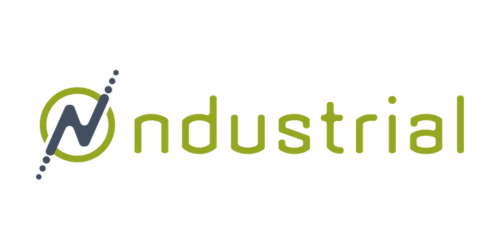
Optimize Module for Real-time Energy Suggestions
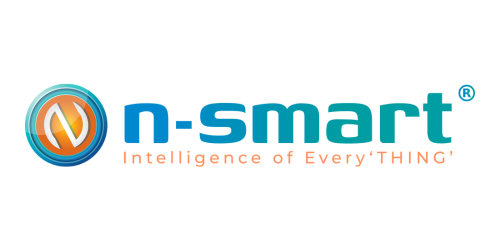
Smart Grid Resiliency
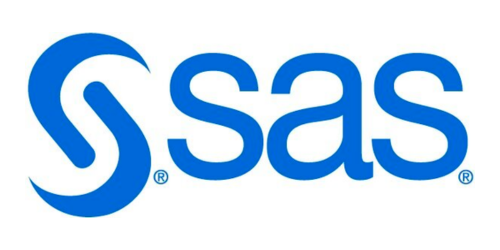
Real-Time Machine Learning Modeling for Renewable Energy Systems
Cleantech Impact: Transportation
Recognizes a transportation or mobility project that uses innovative cleantech solutions to create positive impacts for the environment, economy, and residents.
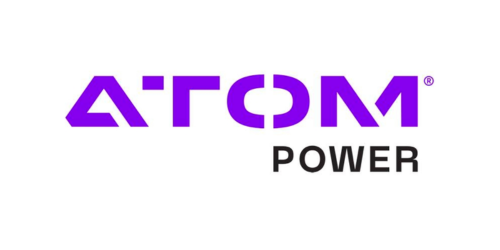
Solid-state Circuit Breaker

Bull E-Bike Pilot

Electric Transport Refrigeration Unit Pilot
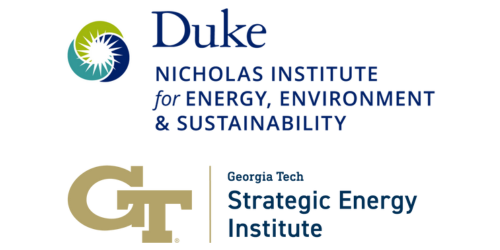
Southeast Portal for Electric Transportation Opportunities
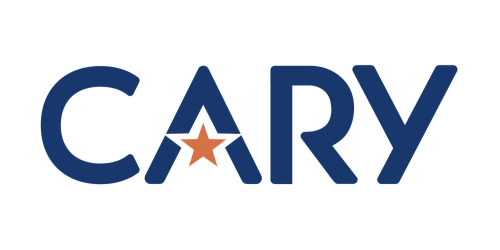
CASSI
Cleantech Impact: Water
Recognizes a water, wastewater, or stormwater project that applies cleantech solutions to create positive impacts for the environment, economy, and residents.

Raleigh Water Sewer Main Failure Prediction Analysis
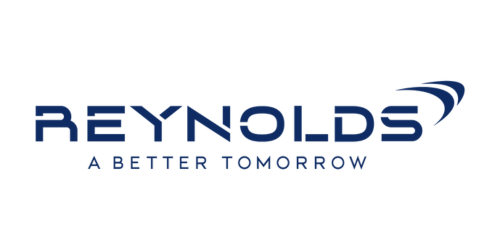
Reynolds WaterHub
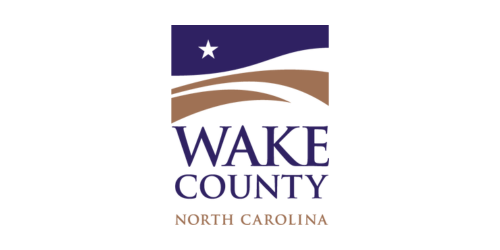
One Water Plan
Cleantech Impact: Local Government
Recognizes a local government that has effectively leveraged resources and partnerships to complete an innovative project or initiative deploying cleantech solutions to create positive impacts for the environment, economy, and residents.

Bull E-Bike Pilot

Solarize the Triangle, Central Pines Regional Council

CASSI




